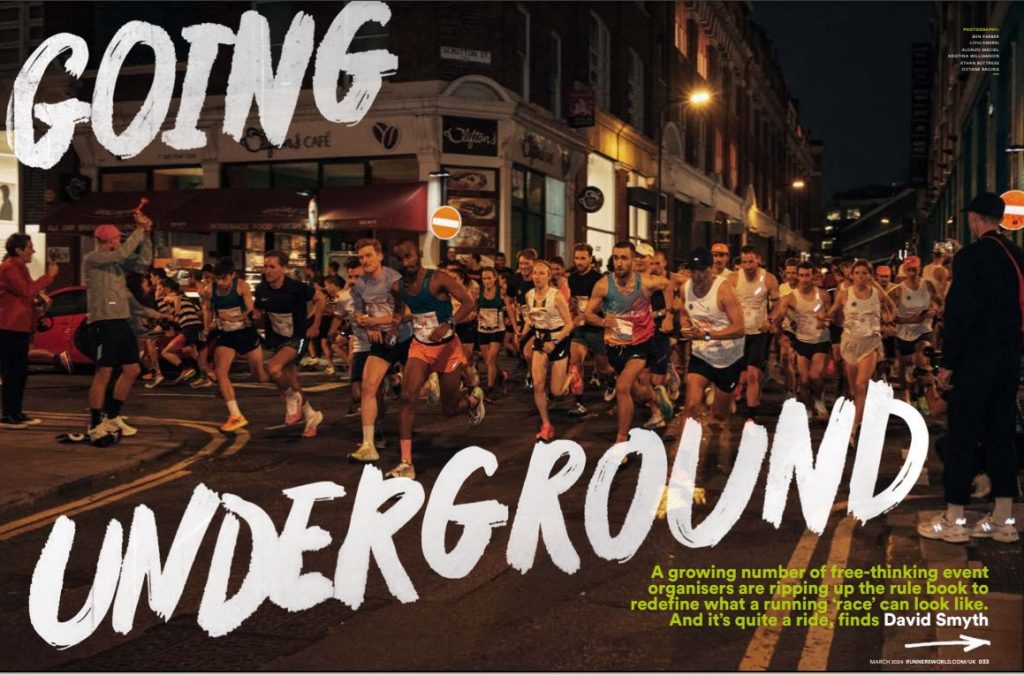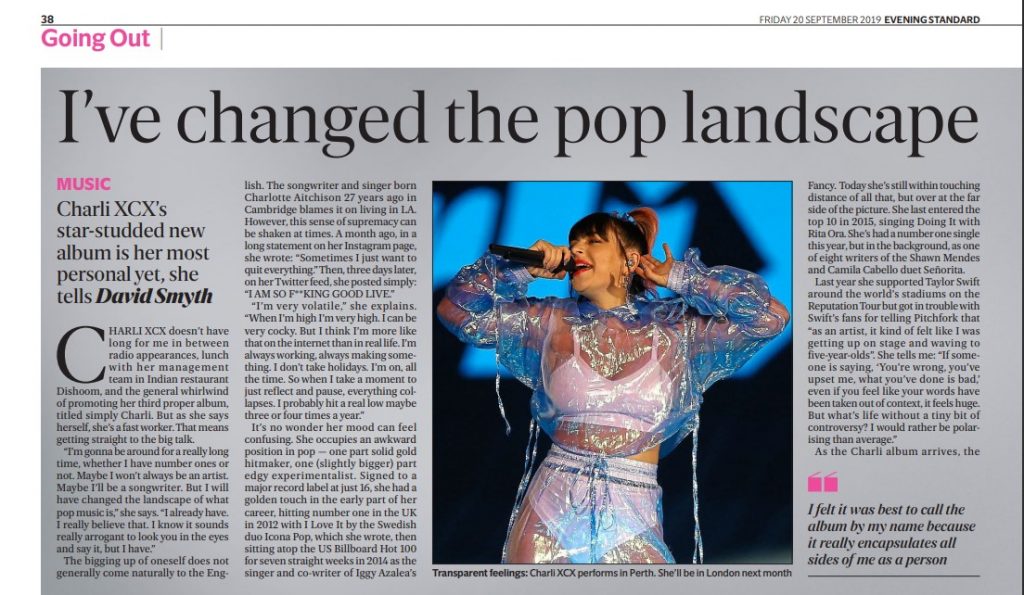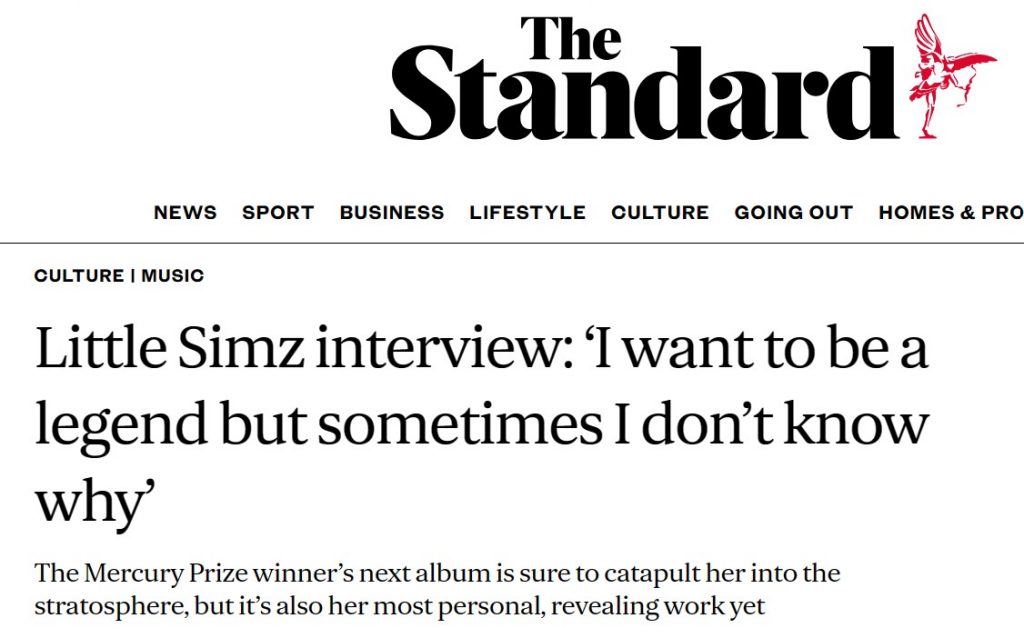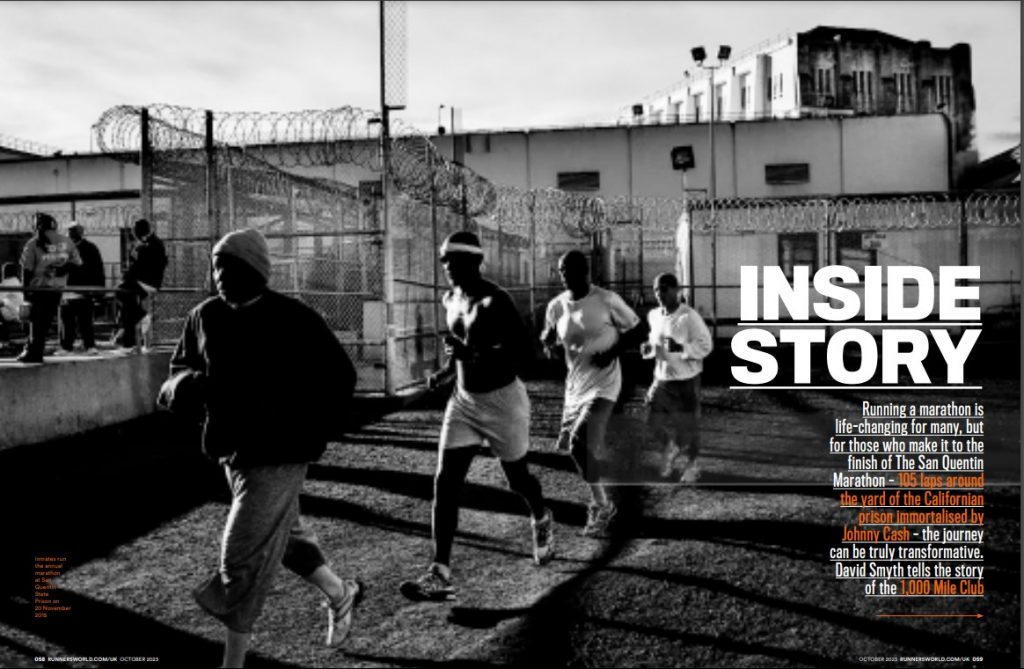I break off my interview with Toni Watson halfway through to ask if she’s okay, or if she’d prefer to stop and do something else. Sitting backstage in a pub venue on a sofa raised on beer kegs, so that her legs dangle innocently like a child on a wall, she sounds as if she’s about to start crying. I’ve just broken the news that her song, Dance Monkey, is now number one in Bulgaria. “That’s crazy. I’ve never even been there,” she marvels.
“I am okay. It’s just been a really long day,” she says, her voice cracking. I’ve been inflicted on her just before her first ever London gig, towards the end of a day of enforced banter as she whizzes round London’s radio stations, being told how amazing she must feel by endless interchangeable bubbly presenters. She embarks on a lengthy rant about all the music industry hoverers who know who she is while she doesn’t know them, and the brain-twisting challenge of coping with an ascent – from playing her keyboard on the street in an Australian tourist resort to worldwide renown in well under a year – that has been rapid by anyone’s standards.
“I’ve spent all day with people asking, ‘How does it feel? How does it feel?’ I am being savagely bullied online. I didn’t think I had a weird voice until everyone started saying I did. People think you should be happy all the time but you can’t,” she says. She looks small and vulnerable inside her outsized clothing – a hoodie, a thick black gilet, chunky basketball boots and a white cap that hides her eyes. She asks for a friend – a girl from Sheffield who has taken some time off work to hang out with her on tour – to sit in on the interview, which is a new one on me, but she does sound like she could do with the moral support.
It seems hard to conceive of the possibility that the musician from just outside Melbourne, who calls herself Tones and I, could be having a bad day. She’s in the thick of watching Dance Monkey, which she wrote and honed while working as a busker in Byron Bay and which is only her second single, take off to a ridiculous altitude. When we meet, the track is number one in 14 countries. Soon it will be 31 countries. It still hasn’t made it in the US, the last big domino to fall, but has just cracked the top 10 over there. Once all the Christmas songs fade away, she might yet do it.
This week in the UK was its eleventh week at the top, beating the record for a female solo artist previously jointly held by Whitney Houston’s I Will Always Love You and Rihanna’s Umbrella. In Australia it has now been number one for longer than any song since their chart began, on 20 weeks and counting. Wildest dreams seems like an understatement.
In the middle of our conversation she picks up her phone and asks it: “What’s the number one song in the world right now?”
“Dance Monkey by Tones and I,” replies Siri, like a 2019 version of Snow White’s stepmother’s mirror. “See? And I did not make it do that!” says Watson.
This week will be her last at number one here. Now the UK Chart Company’s convoluted “ACR” (Accelerated Chart Ratio) rules kick in and she gets demoted before she can take the title of Christmas number one as well. Introduced to keep the charts turning over and prevent Ed Sheeran from being number one until the end of time, in a nutshell ACR dictates that if your song has sold in shrinking quantities for three weeks in a row, the ratio switches, from 100 streams on a paid-for service being equivalent to one “sale”, to 200, effectively cutting the figures in half.
It sounds as if Watson is ready for the song to fade anyway. “I don’t think it’s my best song, even if everyone else does. My favourite is the one I’m going to play first tonight,” she tells me. It’s called Happy and isn’t released yet, a slow-burning ballad in stark contrast to Dance Monkey’s immediate, bouncy catchiness.
As for Dance Monkey, it’s hard to find anyone else who doesn’t love it straight away, with its lemon bright keyboard chords and Watson’s high strange voice giving it everything. There’s a video on YouTube of her performing it last New Year’s Eve, outside in Byron Bay in front of about a hundred revellers, looping the beats and the chords to build the song alone. She apologises for not being loud enough because the battery in her speaker is dying. The person who posted the video writes, in what is presumably not their first language: “Don’t know the name of the song… but I got a big fan of her for the first go.”
“I was living in my van, playing on the street for almost two years,” says Watson. “When I started busking I had no money but I was the happiest I’ve ever been in my life.”
She was spotted in 2017 by a music lawyer out on the town, who offered her support and advice and helped her to get picked up by a management company. They represented another successful musician who started out busking with a loop pedal – Tash Sultana. In February this year she sent her first song, Johnny Run Away, to Triple J Unearthed, a radio station project for newcomers similar to the BBC Introducing system. Another instantly catchy one, it was about a friend of hers coming out as gay to his father. It got played on the radio the same day and by March had hit number 12 in the Australian charts.
That song’s success, as well as a third, Never Seen the Rain, which is currently at number seven Down Under, should put paid to the notion that she might be a one-hit wonder. It’s clearly troubling her. I make a comparison between Dance Monkey and James Blunt’s You’re Beautiful which goes down very badly, but I’m trying to talk about the way a song’s ubiquity can be out of your hands. Your best song is never up to you.
Dance Monkey is about a negative night while busking, with passers by demanding more music when all she wanted to do was pack up and say goodnight. “The lyrics are all things people have said to me while I was busking,” she explains. “‘I beg to see you dance just one more time.’ All these drunk people wanting more and more encores.”
Now that’s happening again on a very different scale. Everyone wants a piece of her. Of course it’s not easy. Less than a fortnight after we meet, she’s back in Australia for the ARIAs, their equivalent of the Brits, where she wins four awards including Best Female Artist. Two days after that triumphant night, she writes a long post on Facebook, which says: “The relentless bullying that follows every proud moment tears my mind in two,” and also, “I am going through the best and worst time of my life.”
Thankfully it concludes: “And today I am OK. I love you and as always.. we are in this together.” She adds a loveheart. It’s black, but it’s still a heart.
Feb 28, O2 Forum Kentish Town, NW5 (o2forumkentishtown.co.uk); Feb 29, Electric Ballroom, NW1 (electricballroom.co.uk)











